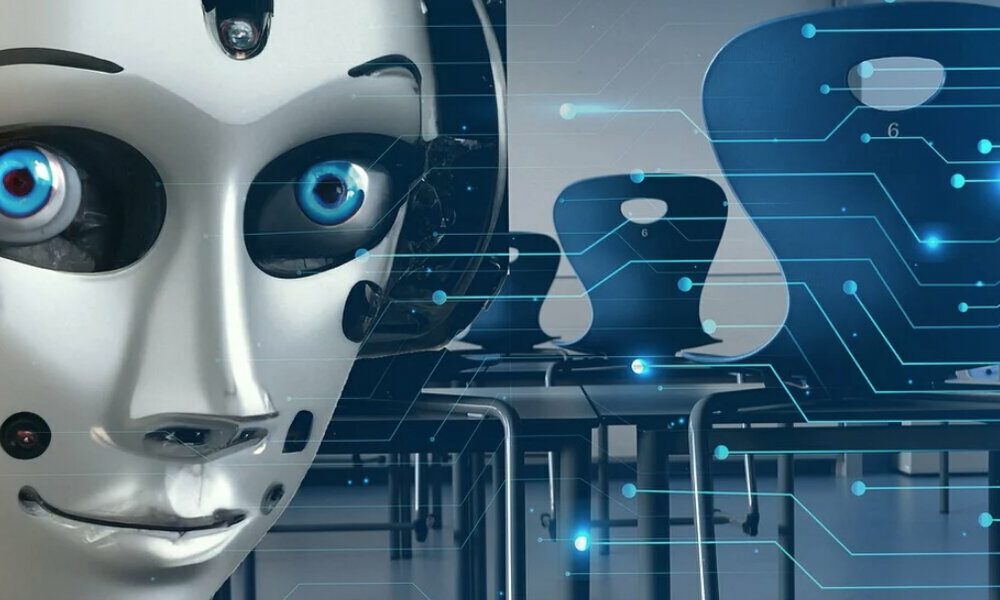
The evolution of Artificial Intelligence, especially generative, in recent months, has accelerated the worst fears of many workers around the world. Not a few were aware that the day would come when the AI began to perform tasks that humans have traditionally been performing. But few expected that he would do it so soon. And less, that he was going to do it in sectors and areas that were traditionally believed to be safe of the arrival of Artificial Intelligence and robots to the company.
Only a few months ago it became clear that the effects of AI on jobs were not going to be limited to assembly lines. Nor were they going to stay in the automation of routine tasks. Given its evolution, the sectors most threatened by Artificial Intelligence today, thanks to large language models, chatbots and other generative AI systems, are all those related to the creative professions and customer service. Some related to development may even be affected in the future.
As expected, many companies are going to care very little about replacing at least part of their staff with Artificial Intelligence systems. These systems do not charge a salary, and therefore do not cause them an expense every month. At most, the investment required to deploy the systems and get them running, and the salaries of a small team of experts to maintain, manage and optimize them. Some have already made it clear that they will do so in the short or medium term. Others are already on it.
Although the first AI staff replacements were somewhat timid and restrained, things started to spiral out of control when IBM He banged on the table and announced that was going to cut several thousand jobs to replace them with Artificial Intelligence systems. And not exactly a few: nothing less than 7,800 positions.
The company announced a few weeks ago that it was going to put on hold the hiring of some 7,800 people over the next few years, with the aim of placing AI systems in the positions that would occupy it. Specifically, according to Company CEO Arvind Krishna, the departments affected by the decision are several in charge of internal tasks, without contact with the public. Among them, the human resources department. According to Reuters, Krishna plans to trade humans for autonomous systems, or with other AIs, in about 30% of the positions in these departments within five years.
BT has been the last big company that has announced that several thousand of its employees will be replaced by Artificial Intelligence systems in a few years. The operator has decided to make a strong workforce reduction in the coming years. As many as 55,000 jobs will be lost at BT before the end of this decade. Of these, approximately a fifth will be replaced by Artificial Intelligence systems.
The company’s executives have announced these plans during the communication of the company’s results. As a result, its workers, which number about 130,000 between employees and collaborators (about 30,000) will be reduced to between 75,000 and 90,000.
BT It plans to carry out the reduction of staff through a plan with several phases, but for now there are no details about them. What is clear is that, According to Philip Hansen, CEO of the company, they will replace around 10,000 positions with AI systems. Specifically, according to Sky News, they will use AI to offer what they call “better customer service«. Also to get other business opportunities, without specifying more about it.
Of course, he has taken the opportunity to clarify that «they are not going to put themselves in a situation where people feel like they are dealing with a robot«. In addition, he has assured that “they have multichannel» and they are online, and that they have «450 stores, and there are no plans to change this«.
A company spokesperson added that “The introduction of new technologies in the company, together with the completion of the fiber infrastructure that will replace the copper network, was going to result, in any case, in a reduction in salary costs for the company in the coming years. However, we want to make it clear that BT wants to retain as many direct jobs as possible, and that any reductions will be done with outsourced staff first.«.
Announcements like these are probably going to become more and more frequent. According to a Goldman Sachs report published last March, around the world some 300 million full-time jobs will be lost due to automation. Furthermore, according to a study conducted by OpenAI and Open Research, large language models, such as GPT, could affect up to 80% of the workforce in the United States and Europe.
Of course, that does not mean that the impact will be such that that percentage will lose their job. Not much less. What is possible is that the vast majority change their way of working. Even that they manage to increase their productivity by performing fewer tasks to be able to focus on others with greater added value.
According to this study, approximately 15% of jobs in the United States will see all their tasks affected by AI. Another 20% will see half of their tasks affected, or more. Meanwhile, 80% of workers will only see 10% of their work affected. Furthermore, this impact is highly dependent on the type of work performed. And the jobs that adopt AI as a support for workers will see that with Artificial Intelligence systems it is possible to do the same job faster and with the same level of quality.
Among the positions that will be most exposed to AI are mathematicians, journalists, authors, web and digital interface designers, and tax accountants. This is not to say that AI is going to replace them, but rather that it could significantly reduce the time spent doing everyday tasks.
Of course, according to the Goldman Sachs study, there is a notable contrast between the employees that will be affected depending on the sector to which they belong. On the one hand, the results of the report indicate that 46% of administrative jobs and 44% of those related to the world of law could be replaced by an AI system in the future. But jobs that require physical effort are safeand will hardly be affected by the AI.



